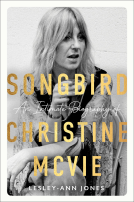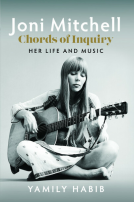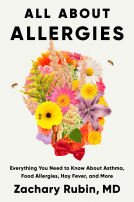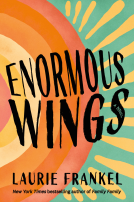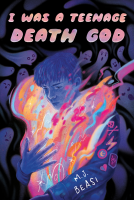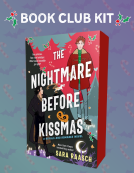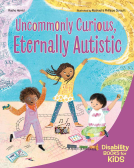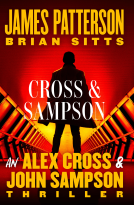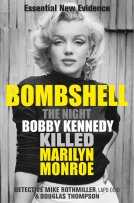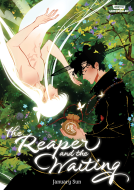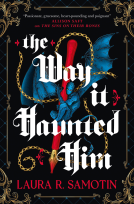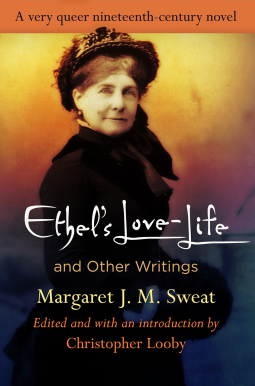
"Ethel's Love-Life" and Other Writings
by Margaret J. M. Sweat
This title was previously available on NetGalley and is now archived.
Send NetGalley books directly to your Kindle or Kindle app
1
To read on a Kindle or Kindle app, please add kindle@netgalley.com as an approved email address to receive files in your Amazon account. Click here for step-by-step instructions.
2
Also find your Kindle email address within your Amazon account, and enter it here.
Pub Date Dec 25 2020 | Archive Date Dec 23 2020
Talking about this book? Use #EthelsLoveLifeandOtherWritings #NetGalley. More hashtag tips!
Description
In a series of lengthy letters, the unsettled and unruly Ethel Sutherland writes to an initially unnamed and ungendered correspondent, and patiently discloses the troubled history of her past romantic attachments to both men and women. Not until the third letter does she reveal that her correspondent is Ernest, the man to whom she is engaged to be married. Wanting to make him understand how all of her past loves are included and sublimated in her love for him, she especially wants to explain how "women often love each other with as much fervor and excitement as they do men"; and although this love is curiously "freed from all the grosser elements of passion, as it exists between sexes," nevertheless it "retains its energy, its abandonment, its flush, its eagerness, its palpitation, and its rapture."
Margaret Jane Mussey Sweat (1823-1908), a native of Portland, Maine, and wife of a United States congressman, published Ethel's Love-Life in 1859. The book is sometimes credited as an early—even the first—"lesbian" American novel, but such a label, Christopher Looby observes in his Introduction, somewhat misrepresents what is distinctive and surprising about the book. Ethel's Love-Life confounds our received binary distinctions between the spiritual and the carnal and, indeed, between the sexual and the nonsexual—the boundaries between such categories being not nearly as well-policed at the time as they later became. It is here reprinted, along with Sweat's Verses (1890) and five of her published essays, on Charlotte Brontë, George Sand, the contemporary novel, and the friendships of women.
Advance Praise
"Ethel's Love-Life challenges us to try to understand erotic feelings and bodily practices that were understood and socially organized in ways that are now quite alien to us. . . . [It] is a great novel, an extraordinary and compelling literary performance that deserves a new life."—Christopher Looby, from the Introduction
Available Editions
| EDITION | Other Format |
| ISBN | 9780812252491 |
| PRICE | $28.95 (USD) |
Average rating from 10 members
Featured Reviews
The romantic experiences of Ethel Sutherland are richly shared through a series of letters that she writes to Ernest, the man she intends to marry. Within these passages she addresses her past, her troubled relationships with men and women, the passions, the desires and the similar intensity of same sex and heterosexual love. Her intent is to make Ernest aware that her prior loves and experiences are encompassed within the richness of her love for him.
Certainly controversial at the time of publication (1859), Sweat authored a sapphic like novel with the undertones of sexual and non sexual love, spiritual connection and intimacy. A very different and enriched study of relationships through the eyes of a Victorian era woman.
Thanks to NetGalley and the University of Pennsylvania Press for an ARC in exchange for a honest book review.
Ethel Sutherland had an interesting romantic life with both men and women before she met Ernest, the man who would become her husband. This book compiles the letters she wrote to Ernest that discloses her romantic attachments. The letters are vulnerable as she shares details that ensure Ernest knows all about her. The letters are also beautifully written - I almost wanted to copy some of her words in love letters to my beloved.
Margaret Jane Mussey Sweat (1823-1908), a native of Portland, Maine, and wife of a United States congressman, originally published Ethel's Love-Life in 1859. That book was hailed as the first lesbian American novel. However, Christopher Looby, the compiler of this compilation, argues that the original book is better labeled as an intimate look at relationships in a time when sexual and nonsexual boundaries were less distinct than they are today. I do agree with that and would give the first section of the book 4 stars..
The second part of the book includes essays by Sweat. I skimmed this section of the book as it covers novels I have not read and that have no connection to Ethel.
 Reviewer 677359
Reviewer 677359
***Special thanks to NetGalley and University of Pennsylvania Press for providing me with a copy of this book in exchange for an honest review***
This book portrays an honest and unflinching look into the complexities of human sexuality. It is a collection of notes written by Ethel Sutherland for her soon to be husband. In this novel she writes about her past relationships, both with men and women, so that her soon to be husband knows who she is,
I like this book, but found it to be rather slow in some areas. It is something that I had to work to read, but it is a very interesting concept and a well executed novel.
I would recommend this book
 Reviewer 592455
Reviewer 592455
Thank you to Netgalley & the Publisher for giving me an ARC to review!
Honestly, this is probably more of a 3, but there were very well written sections, and I do think this book has historical merit that needs to be discussed. So I'm giving it a 4.
I did not read the essays at the back, mostly because I know they weren't going to interest me and I didn't want that to affect my rating.
However the main novel & the poetry were both at least solid. I do think the novel itself felt very dry at times, and like someone was trying to hit a word count rather than tell a narrative. Even though it is supposed to be about a love life, most of the letters are just regurgitating how great Ernest is. And he does sound great, I don't think it needed to be drawn out forever. The bits where we do actually go into the history of Ethel's love life were the most interesting parts and they flew by. It honestly could have been a one off short story instead of a novel, but hey its almost 200 years old so I guess I can cut it some slack.
As for the poetry it was all at least well written and one that really stuck out to me was Love's Calendar.
 Media/Journalist 526791
Media/Journalist 526791
This was an intriguing book! I can only imagine how hard it must have been to be queer in the nineteenth-century. It must have taken some bravery to write a book with a queer character.
 Lesley D, Reviewer
Lesley D, Reviewer
I cannot figure out why the editor (and publisher) brought this book out. Apparently, it failed in the 1800's when first published, and in this day of much more casual speech I wouldn't expect it to be a big hit in its second go-around. As described by Mr. Looby, this novel is a collection of letters written by "Ethel" to her fiance, Ernest, as he is abroad for an extended period. Ethel is entertaining him with explicit stories of her love life with men and women and her thoughts about the whole experience. Mr. Looby takes exception to Ms. Sweat's "arch tone" especially in the essays, and yet it is exactly his own arch tone and the dry commentary in the lengthy introduction that makes this book impossible for me. Others have noted that Ethel's (and thus Ms. Sweat's) comfort and freedom in writing about varieties of sexual experience were unusual in her day, and we can appreciate her forthrightness from the vantage point of our own more sexualized era. But it's kind of a long run for a short jump. In my opinion.
 Reviewer 742047
Reviewer 742047
Culturally important and some parts were well written, but it was very dry. I had to put it down and come back to it after every so often. I wish this had been presented in a different way by the editor that put it all together, but ultimately I think it's important and could be used academically.
This “oops” is completely on me as I thought this was a non-fiction book. I am not a huge fan of ambiguous fiction. The language is lovely as I find most books written in this time period. There is a flow and atmosphere that many authors don’t capture today even when they are writing historicals. Ethel’s Love-Life was not for me, but this does not mean it will not be for you. I just am not a particular fan of this type of fiction so the fault does lie with the author or editor, but me for not paying attention to the detail of fiction instead of non-fiction. (smh).
 Reviewer 675864
Reviewer 675864
"Ethel's Love-Life" and Other Writings by Margaret J. M. Sweat is a delightful collection that offers a charming glimpse into the past. Sweat's writings, filled with wit and humor, provide a unique perspective on love and life during a bygone era. The collection is a nostalgic journey through the author's observations and reflections, making it a pleasant read for those who appreciate a touch of vintage charm and timeless wisdom.
Readers who liked this book also liked:
Yamily Habib
Biographies & Memoirs, Entertainment & Pop Culture, Nonfiction (Adult)
L.M Montgomery
Children's Fiction, Comics, Graphic Novels, Manga, Teens & YA
We Are Bookish
LGBTQIAP+, Romance, Sci Fi & Fantasy
Rasha Hamid
Children's Fiction, Health, Mind & Body, OwnVoices
